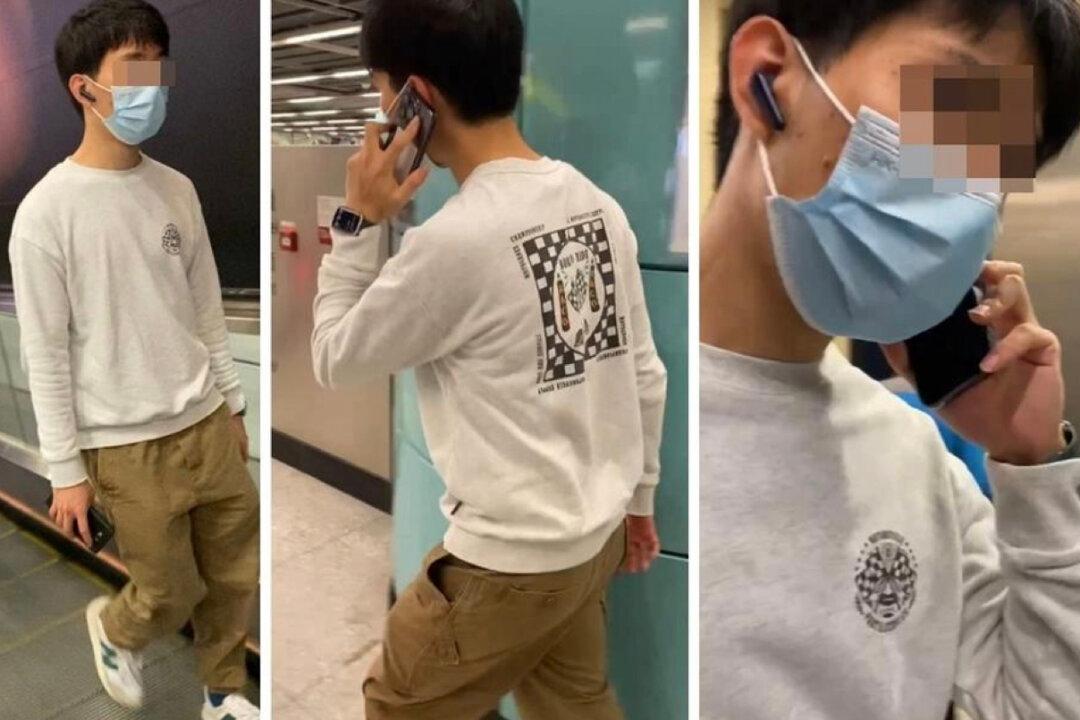On March 24, Hong Kong English-language online media “Hong Kong Free Press” (HKFP) reported that one of its court reporters was followed by two suspicious persons. The Hong Kong Journalists Association HKJA) issued a statement saying that many court reporters were followed or monitored by unknown persons, and some reporters suspected that the stalkers were plainclothes policemen.
https://www.youtube.com/watch?v=4uQUvAkEVrc&t=18s
Since the Chinese Communist Party (CCP) implemented the Hong Kong National Security Law (NSL) in 2020, more than a dozen media outlets in Hong Kong have ceased operations.
The two most notable ones, Apple Daily and Stand News were even put under charges of breaching the NSL. It shows that the freedom of the press in Hong Kong has deteriorated significantly, coupled with incidents of stalking, intimidating, and even attacking journalists being evidence the freedom of the press in Hong Kong is getting worse and worse.
HKFP reported on March 24 that a female court reporter of the agency was followed by two men from Kwai Chung to Kennedy Town for more than an hour on March 22. The footage shows that one of the men, wearing a long-sleeved white sweater, equipped with a Bluetooth headset, wearing a face mask, and holding a mobile phone, was questioned at the MTR station by the reporter about his identity and his intention of following her. The man refused to respond and chose to flee quickly into the masses.
The HKJA issued a statement on March 27 stating that it received reports from different news outlets last week that several reporters were being followed or monitored by unknown persons. After the trial of the “Stand News” case ended on the afternoon of March 21, two men wandered outside the reporter’s room of the district court, and they showed their credentials to the court security guard. One of them waited in front of the press room for more than an hour. A reporter said that the man tried to follow them as they left the court.
The Journalists Association pointed out that many of the journalists who were followed were responsible for reporting the court hearings and strongly condemned the attempts to harass or intimidate journalists. They believed that the situation was very worrying that some people would try to use threatening means to harm journalists’ rights to conduct interviews, which would do no good to showcase the freedom of the press in Hong Kong. The Journalists Association asked the police and the judiciary whether the men were law enforcement officers and whether there had been any law enforcement actions against journalists in recent days.
Incidents of Reporters Pushed by Police While Filming Prosecution Lawyers
On March 17, during the 42nd trial day of the “Stand News Case,” two reporters from “Ming Pao” attempted to film the representatives of the prosecution, Acting Senior Assistant Director of Public Prosecution of the DOJ Laura Ng Shuk-kuen and Acting Senior Prosecutor Jennifer Tsui Sin-chi leaving after the court adjourned in the afternoon. At the time, one police officer from the case management team twice pushed the Ming Pao reporter and insulted the reporter with abusive language: “What the f--- are you filming here!”Media Outlets Shut Down, Journalists Targeted Since NSL Implementation
In October last year (2022), the International Federation of Journalists published the “Report on Freedom of Speech in Hong Kong,” criticizing the “National Security Law” for hollowing out Hong Kong’s press freedom. Since the NSL was implemented on June 30, 2020, between 2021 and 2022, at least 12 media outlets have ceased operations, including “Apple Daily,” “Stand News,” “DB Channel,” “Post 852,” “Citizen News,” “FactWire,” “Polymer,” “Mad Dog Daily,” among others.A number of the media and their personnel were arrested by the National Security Department of the Hong Kong Police Force and subsequently prosecuted by the government on various charges. Jimmy Lai Chee-ying, the founder of Next Media Group, was convicted in several social movement cases earlier and was also accused together with several former senior executives of “Apple Daily” of colluding with foreign countries or foreign forces to endanger national security. Lai pleaded not guilty, and the trial is expected to start in September this year (2023). He is currently serving a sentence of five years and nine months in prison for fraud.
Chung Pui-kuen, the former editor-in-chief of “Stand News,” and Patrick Lam Siu-tung, the former acting editor-in-chief, were charged with “conspiring to publish seditious publications.” The two pleaded not guilty and the case is being tried in the District Court. “Stand News” blogger and senior media personality Allan Au Ka-lun was arrested by the National Security Department of the Police Force on suspicion of violating “conspiracy to publish seditious publications” in April last year (2022). The case has not yet entered the prosecution process.
Tang Cheuk-yu, former Taiwan Public Television Service special contract director, was arrested during a filming interview with PolyU on Nov. 18, 2019. In December 2022, he was convicted of possessing an offensive weapon in a public place and was sentenced to 15 months in prison.




